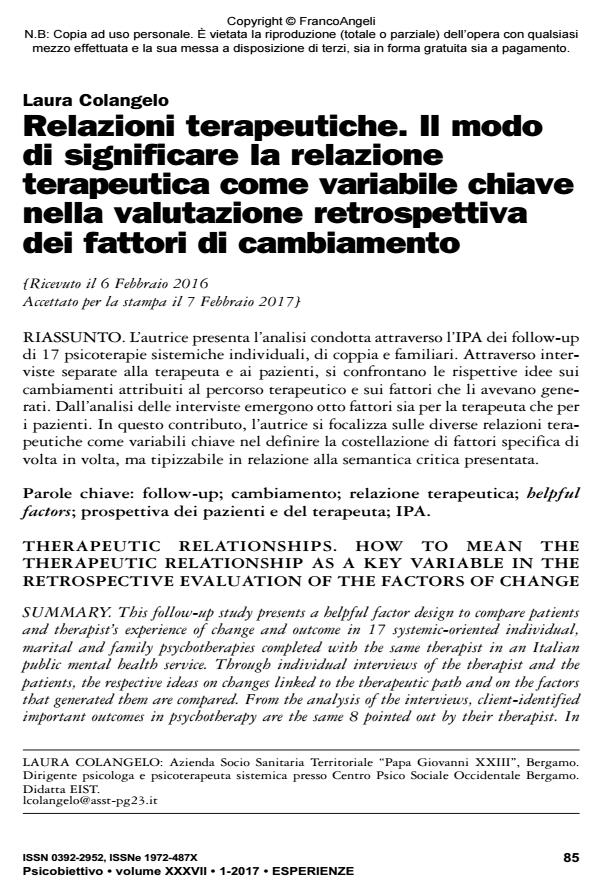Therapeutic relationships. how to mean the. Therapeutic relationship as a key variable in the retrospective evaluation of the factors of change
Journal title PSICOBIETTIVO
Author/s Laura Colangelo
Publishing Year 2017 Issue 2017/1
Language Italian Pages 18 P. 85-102 File size 719 KB
DOI 10.3280/PSOB2017-001006
DOI is like a bar code for intellectual property: to have more infomation
click here
Below, you can see the article first page
If you want to buy this article in PDF format, you can do it, following the instructions to buy download credits

FrancoAngeli is member of Publishers International Linking Association, Inc (PILA), a not-for-profit association which run the CrossRef service enabling links to and from online scholarly content.
This follow-up study presents a helpful factor design to compare patients and therapist’s experience of change and outcome in 17 systemic-oriented individual, marital and family psychotherapies completed with the same therapist in an Italian public mental health service. Through individual interviews of the therapist and the patients, the respective ideas on changes linked to the therapeutic path and on the factors that generated them are compared. From the analysis of the interviews, client-identified important outcomes in psychotherapy are the same 8 pointed out by their therapist. In this article, the author focalizes her attention on the multiple therapeutic relations as key variables in defining the constellation of specific factors from time to time, but typeable in relation to the critical semantics presented.
Keywords: Follow-Up; Change; Therapeutic Relationship; Helpful Factors; Patients and Therapist’s Perspective; IPA.
Laura Colangelo, Relazioni terapeutiche. Il modo di significare la relazione terapeutica come variabile chiave nella valutazione retrospettiva dei fattori di cambiamento in "PSICOBIETTIVO" 1/2017, pp 85-102, DOI: 10.3280/PSOB2017-001006